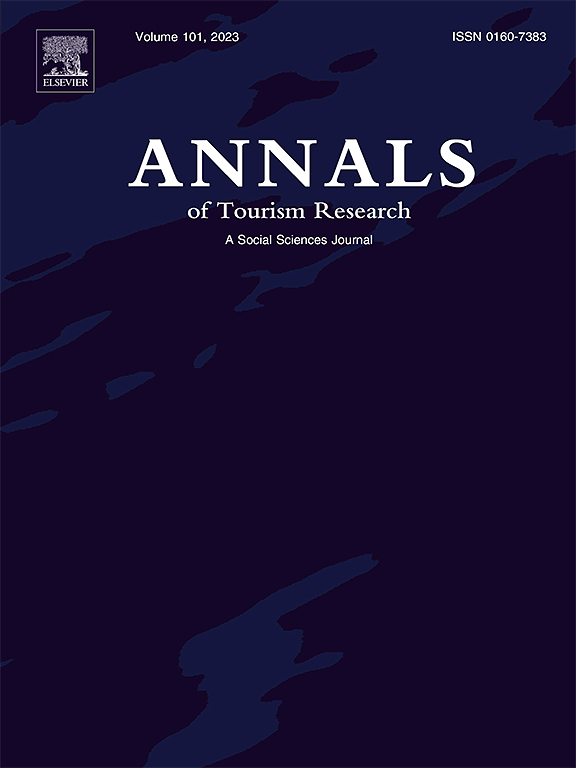向博物馆学习:博物馆阐释中的资源稀缺性与可持续消费意愿
IF 7.8
1区 管理学
Q1 HOSPITALITY, LEISURE, SPORT & TOURISM
引用次数: 0
摘要
资源消耗是旅游业可持续发展面临的挑战。博物馆是培育社会美德的重要场所,在资源节约的公众教育方面潜力巨大。本研究通过场景实验、现场实验和眼动追踪技术相结合的五个实验,证明了历史资源的稀缺性,特别是通过博物馆解说传达的稀缺性,增强了游客的可持续消费意愿。来自博物馆真实参观者的眼球追踪证据表明,增加叙事参与是关键的潜在机制。值得注意的是,历史资源稀缺性解释的效果取决于游客的时间取向,未来取向的游客对解释的教育影响更容易接受,而现在取向的游客则表现出较低的响应性。这些发现通过展示博物馆解说如何作为有效和吸引人的教育工具,鼓励游客的可持续实践,显著推进了生态旅游文献。本文章由计算机程序翻译,如有差异,请以英文原文为准。

Learning from museums: Resource scarcity in museum interpretations and sustainable consumption intention
Resource consumption poses challenges to sustainable tourism development. Museums, crucial for fostering social virtues, hold untapped potential for public education on resource conservation. Through five experiments integrating scenario-based experiments, field experiments, and eye-tracking techniques, this research demonstrates that historical resource scarcity, particularly conveyed through museum interpretations, enhances tourists' sustainable consumption intentions. Eye-tracking evidence from real visitors in a museum highlights increased narrative engagement as the key underlying mechanism. Notably, the effect of interpreting historical resource scarcity depends on tourists' time orientation: future-oriented tourists are receptive to the educational impact of interpretations, while present-oriented tourists show diminished responsiveness. These findings significantly advance ecotourism literature by demonstrating how museum interpretations can serve as effective and engaging educational tools, encouraging tourists' sustainable practices.
求助全文
通过发布文献求助,成功后即可免费获取论文全文。
去求助
来源期刊

Annals of Tourism Research
Multiple-
CiteScore
19.10
自引率
9.10%
发文量
135
审稿时长
42 days
期刊介绍:
The Annals of Tourism Research is a scholarly journal that focuses on academic perspectives related to tourism. The journal defines tourism as a global economic activity that involves travel behavior, management and marketing activities of service industries catering to consumer demand, the effects of tourism on communities, and policy and governance at local, national, and international levels. While the journal aims to strike a balance between theory and application, its primary focus is on developing theoretical constructs that bridge the gap between business and the social and behavioral sciences. The disciplinary areas covered in the journal include, but are not limited to, service industries management, marketing science, consumer marketing, decision-making and behavior, business ethics, economics and forecasting, environment, geography and development, education and knowledge development, political science and administration, consumer-focused psychology, and anthropology and sociology.
 求助内容:
求助内容: 应助结果提醒方式:
应助结果提醒方式:


